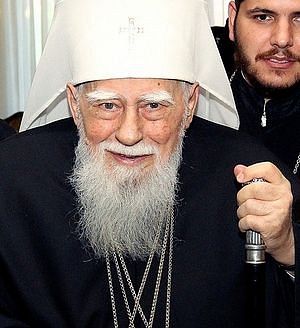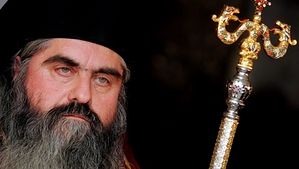November 14, 2012

|
| His Holiness Patriarch Maxim of Bulgaria, reposed on Tuesday, November 6, 2012. |
At meeting of the Synod of the Bulgarian Orthodox Church on Saturday, November 10, Metropolitan Kiril of Varna and Veliki Preslav received seven out of twelve votes by secret ballot of the attending Metropolitans, making him the interim head of the Church. At the same meeting, which was chaired by Bishop Grigoriy of Veliko Tarnovo, Bishop Kiril was also appointed interim metropolitan of Sophia.
In an open letter to the Holy Synod, sent Tuesday and published on the official site of the Bulgarian Orthodox Church, the same Bishop Gregoriy announced that he is withdrawing his signatures over the growing criticism against the Church, particularly for violating the Holy Synod’s Code in selecting the interim patriarch and Sofia metropolitan.
He writes that he was firmly insisting for his signatures to be deleted and made invalid.
Bishop Nikolay of Plovdiv announced Monday his official position on the selection of Kiril. He sent an open letter to the Holy Synod as well, stating he intended to keep silence for 40 days, and he would not be attending the Synod's meetings. Nikolay also voiced his concern that the election may have been conducted in violation of the codes.
The other candidate for the position, vacant after the recent repose of Bulgarian Patriarch Maxim, was Metropolitan Yoaniky of Sliven.
Kiril will lead the Bulgarian Orthodox Church for four months and will be instrumental in preparing the convention of a National Church Council to elect a new Patriarch.
 |
| Bishop Kirill of Varna and Veliki Preslav. |
After Maxim's death, the Synod initially gave the position of Sofia bishop—a position traditionally held by Bulgaria's Patriarch—to Nikolay.
During 2011 and early 2012, there was a controversy (mainly among secular people) in Bulgaria concerning bishop Kiril’s expensive automobile. This incident renewed the debate in secular media about the sources of wealth among senior Bulgarian clergy.
In mid-January, Bulgaria's so-called Files Commission—a panel investigating the Communist era secret files—exposed eleven out of a total of fifteen Bulgarian Metropolitans as having some ties with the secret services.
Nikolay is one of the few members of the Holy Synod who have not worked for the former State Security, but he is also one of a younger generation of bishops, and never had to face the reality of a communist regime.
